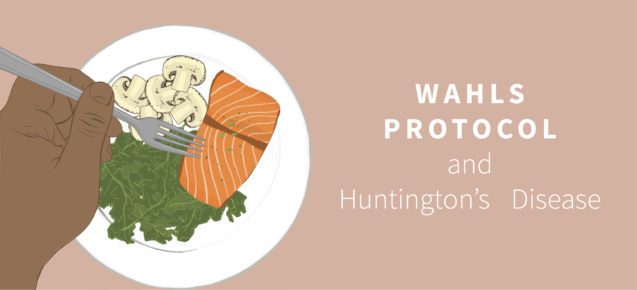Inflammation, what we commonly know as the swelling, redness, heat, and pain that often accompany injuries, is one of our body’s most important natural defense mechanisms against internal and external threats. The inflammatory process protects our body from damage and disease by releasing cells and mediators that combat foreign substances…
More
The reaction that occurs when the immune system fights back against injury or infection in a particular part of the body. That part of the body is called ‘inflamed’, and may look red and swollen.
More
Overview Researchers in China recently conducted a study that provided new insights into signaling pathways in the brain, and how these pathways can affect the concentration of huntingtin protein in the brain12. Huntingtin protein is an important biological agent for many facets of our bodies, including cell signaling and the…
More
The Wahls Protocol is a diet program designed to mediate symptoms of Multiple Sclerosis (MS), an autoimmune disease that acts by removing the protective coverings that surround neurons. Terry Wahls introduced this diet around 2011, with the claim that it helped her go from using a wheelchair to walking and…
More
The following is a brief survey of HD-related research published during October-December 2020: Therapeutic Advances Stem Cell Therapy Stem cell therapy refers to a method that promotes the repair response of diseased tissue using stem cells, or cells with the potential to differentiate into many different types. This therapy…
More
The following is a brief survey of HD-related research published during July-September 2020: Therapeutic Advances Stem Cell Therapy Stem cell therapy refers to a method that promotes the repair response of diseased tissue using stem cells, or cells with the potential to differentiate into many different types. This therapy…
More
Recent research has focused on tackling the issue of the unmet medical need of an objective and quantitative biomarker for Huntington’s disease (HD). The discovery of biomarkers specific to the different stages of HD could help physicians monitor the physical changes of an individual’s HD during asymptomatic stages, and help…
More
The 17th annual HOPES conference highlighted the clinical potential for targeting the DNA and RNA of the mutant huntingtin gene, as well as the importance of advocacy in transforming the Huntington’s disease community. University of California, Davis doctoral candidate Peter Deng discussed using artificial transcription factors to “switch off” the…
More
What are clinical trials? In order for any drug or treatment to be approved for human use by the FDA, it must first successfully pass clinical trials. A clinical trial is a medical or health-related research study in humans that follows a strict protocol in a carefully monitored, scientifically controlled…
More
Background Huntington’s Disease (HD) is a heritable neurodegenerative disease characterized by significant neuron loss in the striatum, a region of the brain primarily involved in voluntary movement, followed by widespread neuron loss in other brain regions. More information on the basics of HD, including symptoms and genetics, is available here.…
More
On the 19th of November, 2016, the University of California San Francisco’s Memory and Aging Center hosted their 13th Annual Huntington Disease Research Symposium. This symposium featured the latest in research and therapies, allowing patients and families more information about combating the disease. A recorded video of the symposium is…
More
This article is meant to provide insight into a specific type of therapy; it is not a recommendation. Please consult your physician for any medical decisions. The prevalence of pain in Huntington’s disease is unknown. An initial case report describes severe pain in two HD patients (Albin and Young, 1988).…
More
Although symptomatic HD patients are rarely encountered during pregnancy due to its late onset, the shift toward older maternal age means doctors will more likely encounter pregnant patients with HD. A search of the entire PubMed literature from January 1966 to August 2007 yielded 203 reports focusing mainly on prenatal…
More
In September 2013, several HOPES student researchers attended the Huntington’s Disease World Congress, held in Rio de Janeiro, Brazil. Summaries of the all the sessions attended can be found in the Conferences and Conventions section of our site. The HOPES trip to the 2013 World Congress received partial support from…
More
The blood-brain barrier (BBB) is a layer of cells that block most molecules from entering the brain in order to protect this sensitive organ from external invaders. It does its job so well that delivering treatments to the brain is extremely difficult and poses a great challenge to drug development.…
More
The human immune system consists of various cells circulating in blood and lymph vessels that can localize to sites of damage, injury, or infection and help in repairing damaged cells and destroying foreign or unhealthy substances. The immune system is complex, involving innate mechanisms such as inflammation and fever as…
More
HOPES summary of the talks from scientists and clinicians Note: This article includes references to Dimebon, which is no longer being considered as a potential treatment for HD after the HORIZON clinical trial showed that Dimebon was not better than a placebo. For more information, click here F. Clum, C.…
More
As viable human brain tissue is not available for use in studying disease development and creating therapies for neurological disorders like Huntington’s disease (HD), researchers desperately needed an alternative cell source for this purpose. Embryonic stem cells fit this role but have many disadvantages, especially for treatments, including immune rejection…
More
Mesenchymal stem cells (MSCs) are a type of multipotent stem cell, meaning that they can give rise to many but not all types of cells in the body. MSCs secrete substances, including cytokines and growth factors, that are essential to cell growth and help repair damaged tissue. Researchers are still…
More
A novel track of research has unearthed new meaning to the old adage “you are what you eat”. Research suggests that our diet plays a role in neurogenesis, the process by which we produce new neurons. Therefore, a diet rich in “brain food” may promote neurogenesis and thereby might repair…
More
Compounds that have the ability to regulate the transcription of specific sets of genes are being proposed as possible candidates for treating HD. Some of these compounds may be able to regulate genes to produce proteins that could delay various HD symptoms. For example, some of the drugs…
More
Cytokines that control inflammation in both the neural and peripheral immune system.
More
Proteins that inhibit the expression of genes that code for proteins involved in inflammation.
More
An inflammation of the lungs that can be caused by infection or other environmental irritants.
More
A compound that reduces inflammation by increasing permeability of blood vessels and contracting various involuntary muscles such as those in airways.
More


